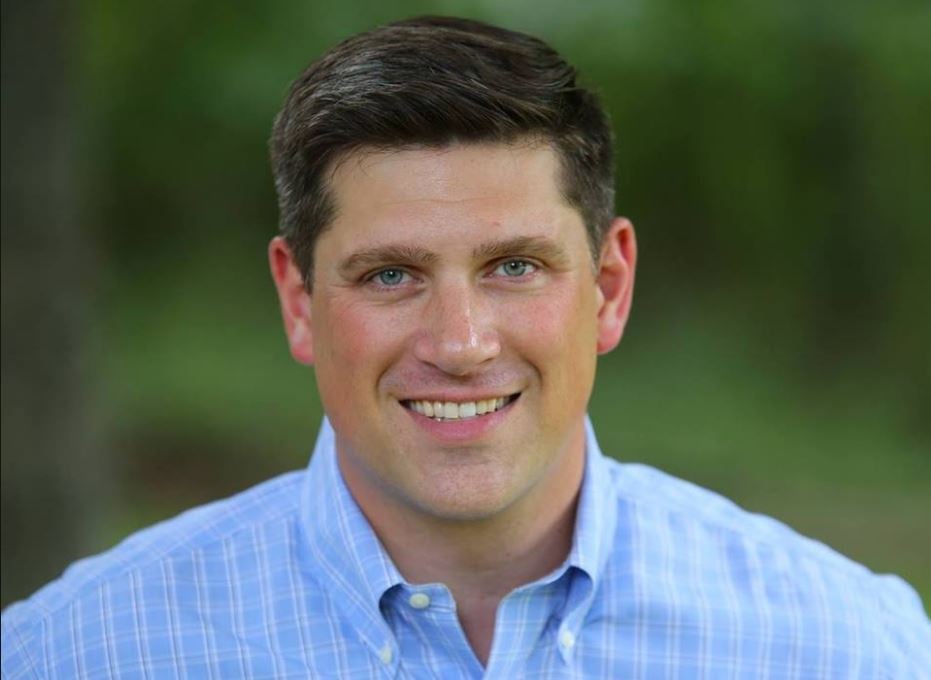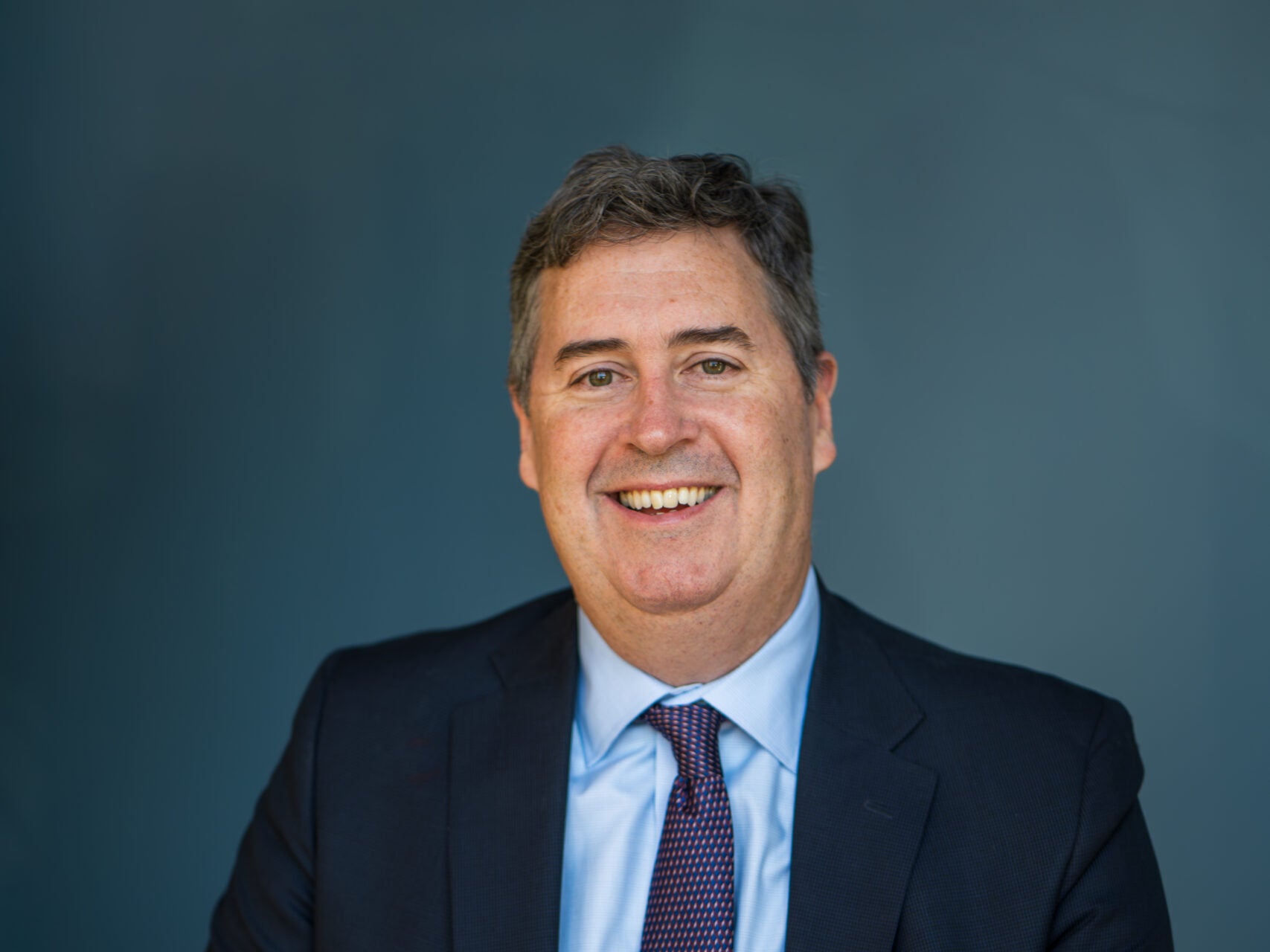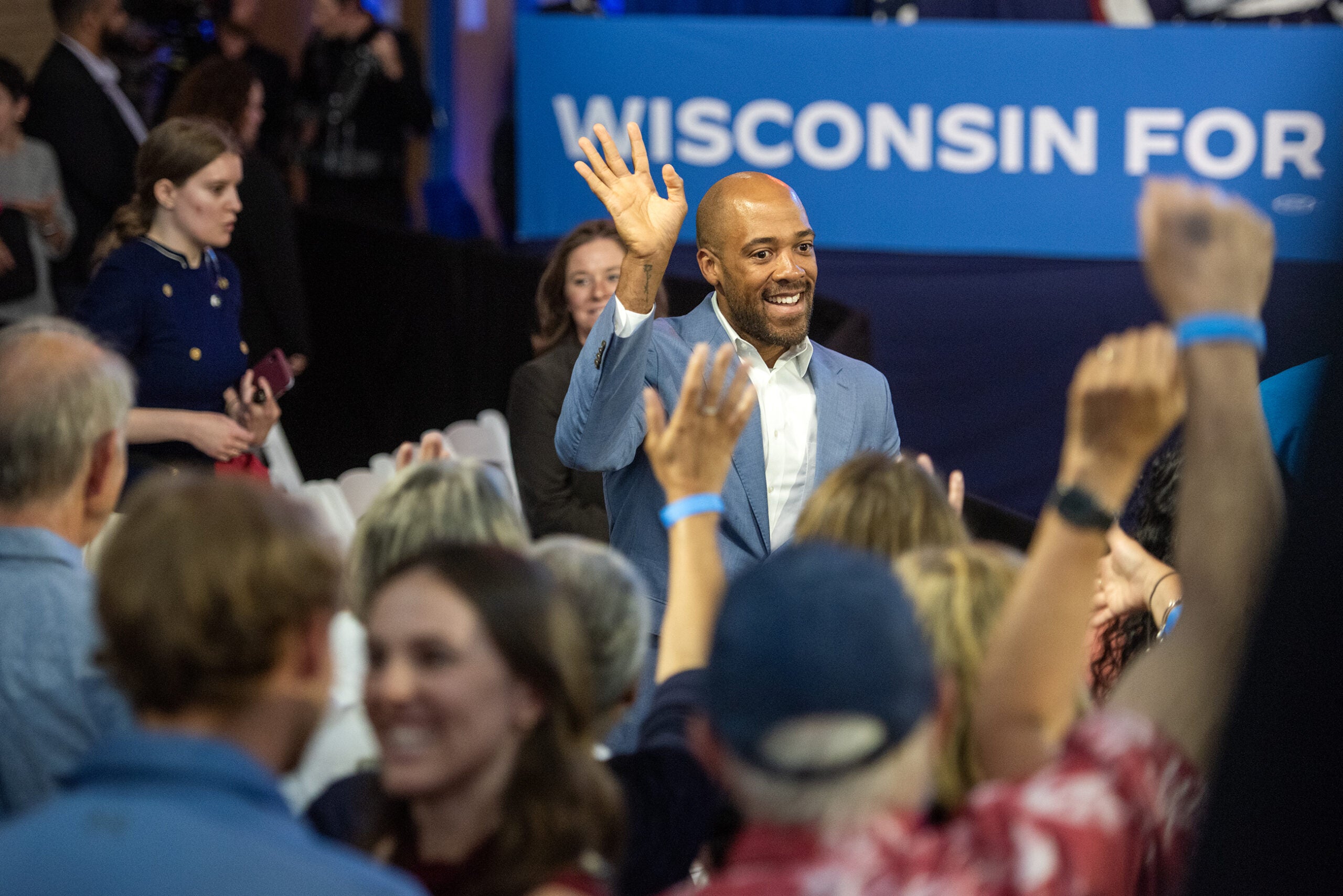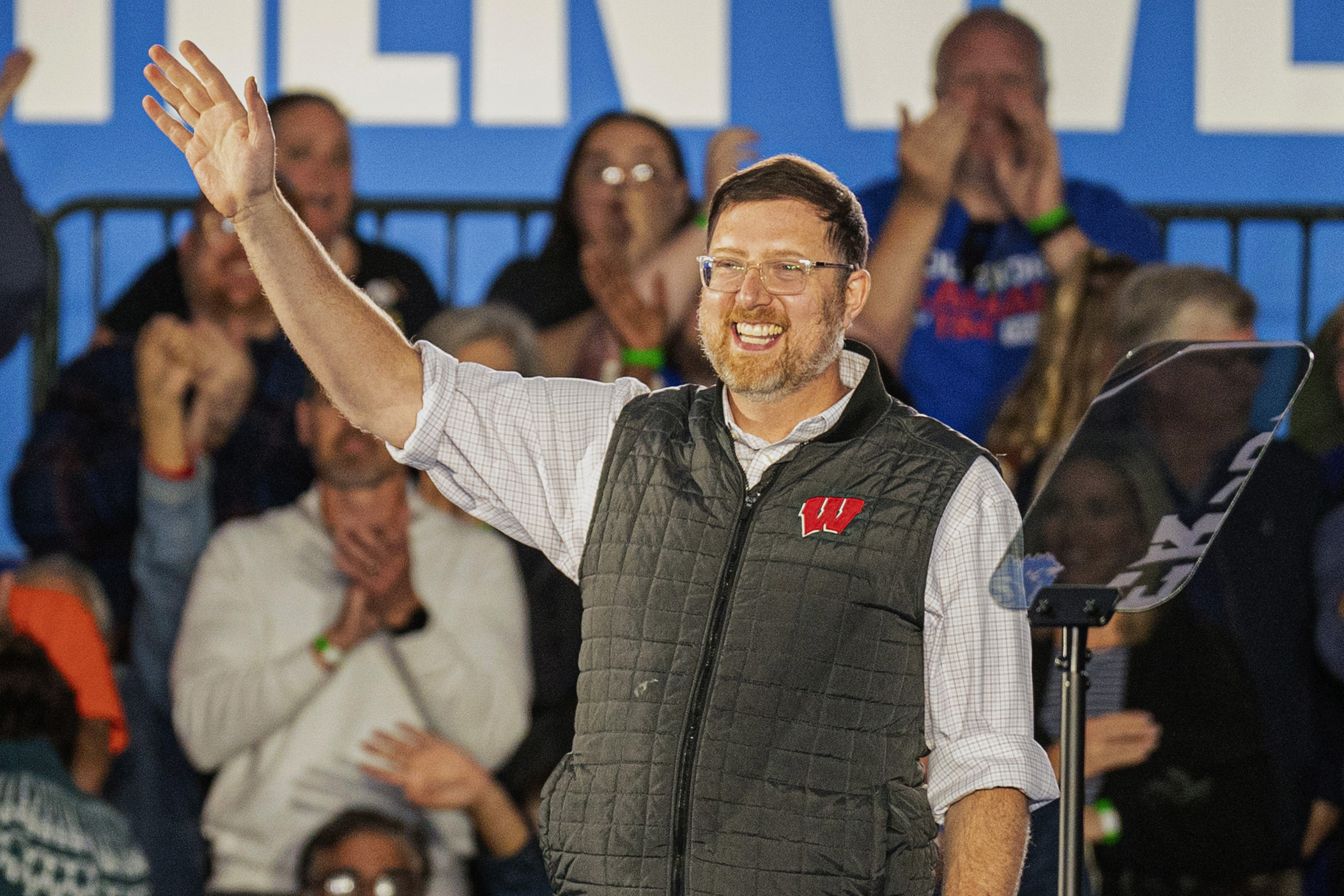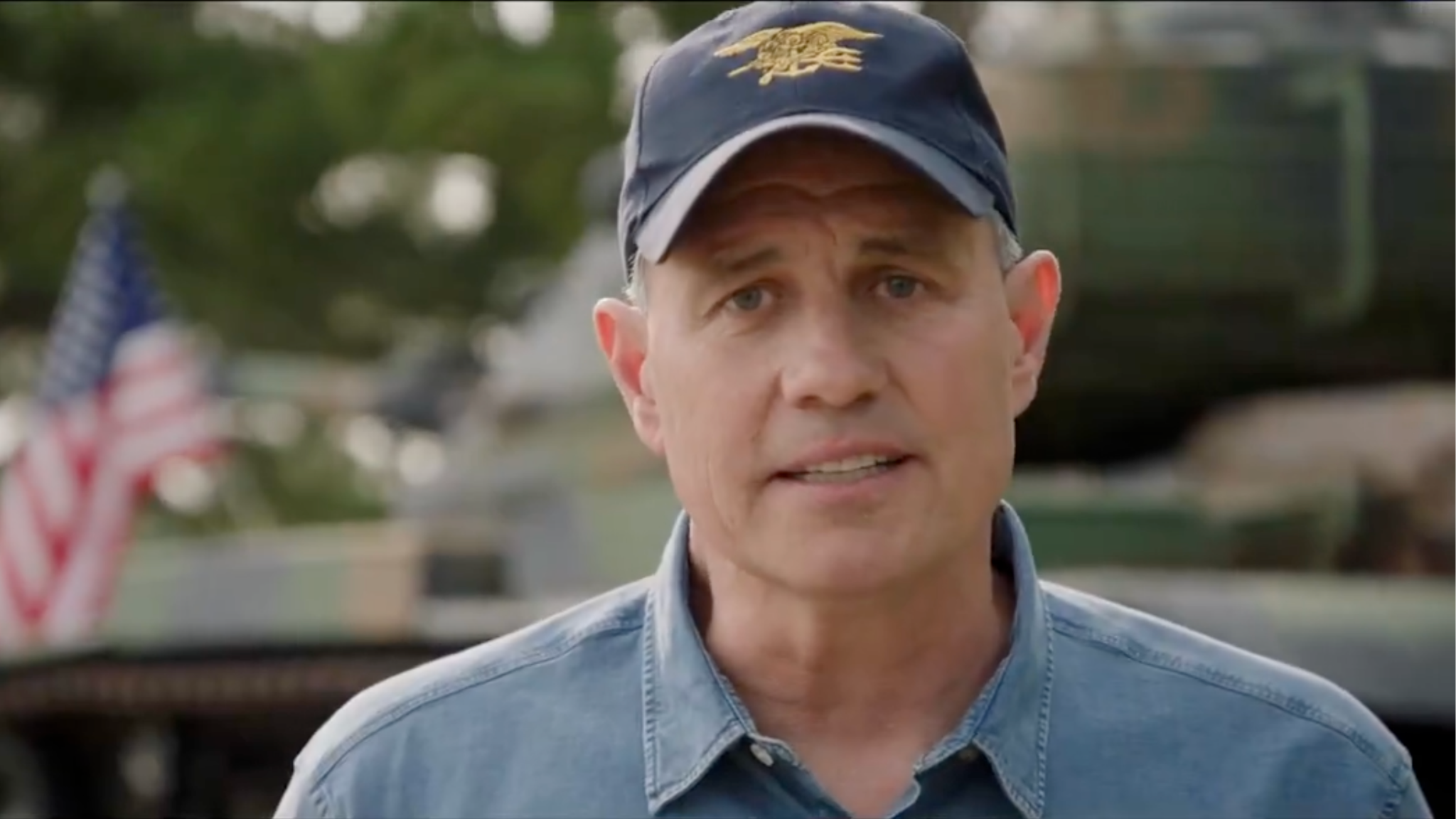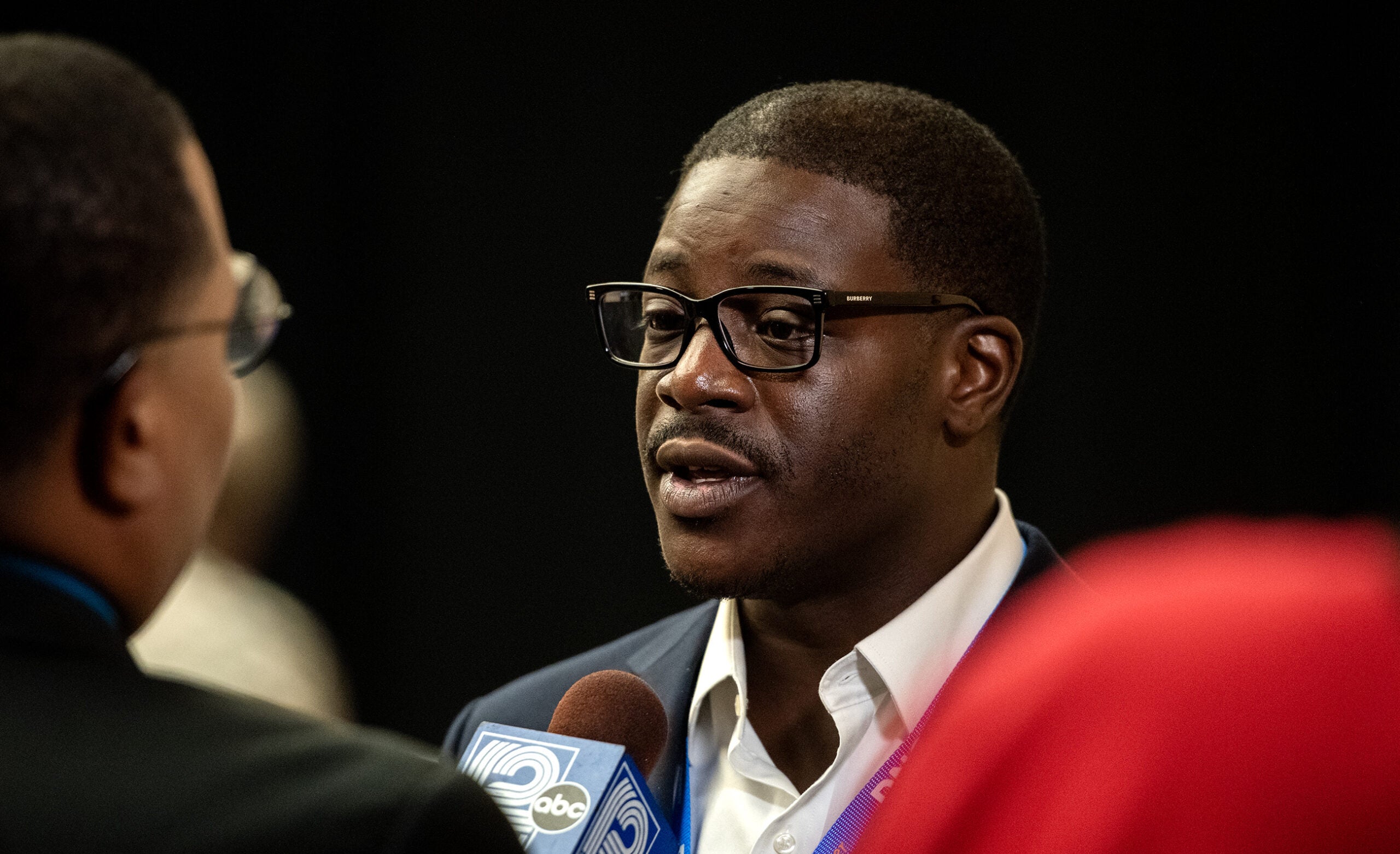Republican Kevin Nicholson has officially joined the race for governor in Wisconsin, setting the stage for what could be a bruising GOP primary with former Lt. Gov. Rebecca Kleefisch.
Nicholson, who ran unsuccessfully for U.S. Senate in 2018, launched his campaign website Thursday, confirming months of speculation that he would enter the race. Kleefisch, who served for eight years as former Gov. Scott Walker’s lieutenant governor, officially launched her campaign in September.
Several Republicans and their allies had been hoping to avoid a messy primary, with the Legislature’s most powerful GOP lawmaker, Assembly Speaker Robin Vos, R-Rochesterer, openly advising Nicholson to stay out of the race. Wisconsin Manufacturers and Commerce, the state’s largest business group and a reliable GOP ally, also endorsed Kleefisch.
News with a little more humanity
WPR’s “Wisconsin Today” newsletter keeps you connected to the state you love without feeling overwhelmed. No paywall. No agenda. No corporate filter.
But Nicholson, a former Marine who has embraced the role as an anti-establishment candidate, has brushed back calls for him to step aside. In a statement released Thursday, he said the state needs a fighter, not someone “stepping up to the next rung of the political ladder.”
“We can’t take Wisconsin to new heights if we elect a Governor from the same, tired political class that lacks the vision, ability, and will to fight for the future of our state,” Nicholson’s statement read. “Wisconsin needs someone with solutions to the problems plaguing our state — and the leadership skills to implement those solutions.”
While Nicholson enters the race for governor as an underdog, he’s a formidable candidate in part because of who’s backing him. Richard Uihlein, the Illinois businessman and co-founder of the Pleasant Prairie-based shipping supply and packing company Uline, spent millions supporting Nicholson’s unsuccessful run for Senate in 2018. Uihlein and his wife, Elizabeth Uihlein, spent $68 million on federal candidates in the 2020 election cycle alone, making them the fourth largest donors in the nation.
Richard Uihlein issued a statement earlier this week unambiguously endorsing Nicholson, calling him “one of the very few” people who can shake things up in the state.
“Kevin is a born leader,” read the statement from Richard Uihlein. “If he decides to run for Governor, he will have my full support and commitment to win the primary and general elections. I know he’s the fighter we need to get Wisconsin back on track.”
When it comes to the Nicholson-Kleefisch primary, it’s possible even the Uihleins aren’t united. Elizabeth Uihlein has donated $20,000, the most allowed under state law, to Kleefisch’s campaign and another $200,000 to a super PAC backing Kleefisch.
Carroll University political science professor Lilly Goren said Nicholson’s candidacy would make the Republican primary for governor “a bit more raucous.” In the post-Walker era, she said, there was an effort among some Republicans to unite the party. Nicholson, she said, largely opposed that narrative.
“It’s interesting because the Republican Party in Wisconsin has been fairly united in lots of ways over the last decade or more,” Goren told Wisconsin Public Radio. “And this is potentially showing some signs of where the party may not be as united as it has been in the past.”
While party leaders often look to avoid primaries, there are abundant examples of candidates emerging from primaries to win general elections in Wisconsin.
Walker hoped to avoid a primary in 2010 but ended up running against former Republican U.S. Rep. Mark Neumann. In that race, it was Neumann who adopted the outsider role, but he ultimately lost in a landslide to Walker, who went on to win the general election comfortably.
In 2018, Gov. Tony Evers faced a Democratic primary that at one point included 13 candidates before some dropped out. Evers emerged from the race thanks in large part due to his name recognition as state superintendent of public instruction and went on to defeat Walker by a little more than 1 percentage point.
But there are also examples where primaries have gone badly, particularly for Wisconsin Republicans. In 2012, former Republican Gov. Tommy Thompson was one of four GOP candidates running for U.S. Senate. It was a vicious campaign, leaving Thompson politically damaged, and momentarily broke, for the general election. Democratic U.S. Sen. Tammy Baldwin defeated Thompson, effectively ending his political career.
And in 2018, with memories of that 2012 primary still fresh, Nicholson ran an aggressive primary against former Republican state Sen. Leah Vukmir, a longtime GOP activist and personal friend of Walker. Vukmir won the primary but lost to Baldwin in the general election by double digits.
When Speaker Vos was asked about Nicholson at a recent Wispolitics forum, Vos advised him not to run, a position he reiterated last week when asked again at a state Capitol news conference.
“I think Rebecca Kleefisch is the best situated,” Vos said. “She has worked the hardest. She’s been doing this for over a year.”
Vos referenced poll numbers circulated by the Kleefisch campaign showing her as the clear front-runner in the primary race.
“The only way to beat that person is usually to bring them down,” Vos said. “Well, bringing down that person — in this case, Rebecca Kleefisch — helps Tony Evers.”
Nicholson responded to Vos on Twitter, telling the assembly speaker: “How about you focus on doing your job?”
Kleefisch’s campaign did not immediately issue a statement following Nicholson’s candidacy, though the two of them have already clashed.
In October, after Kleefisch was quoted as saying she wanted to “hire mercenaries” and host ballot-gathering events to compete with Democrats, Nicholson said anyone who supports that idea is “as dumb as a bag of hammers.”
While this will be Nicholson’s second GOP primary in four years, two decades ago, he was active in Democratic politics. Nicholson was the president of the College Democrats of America and gave a speech to the 2000 Democratic National Convention.
Since losing in 2018, Nicholson founded the group “No Better Friend,” using the platform to travel the state and meet with Republicans. He had also been mulling a run for U.S. Sen. Ron Johnson’s seat until Johnson announced he would seek a third term.
In addition to Kleefisch and Nicholson, Franklin businessman Jonathan Wichmann has filed to run for the GOP nomination for governor. Madison businessman Eric Hovde, one of the Republicans who ran for U.S. Senate in 2012, has also been considering the race.
The primary for governor will be held on Aug. 9.
Wisconsin Public Radio, © Copyright 2025, Board of Regents of the University of Wisconsin System and Wisconsin Educational Communications Board.

